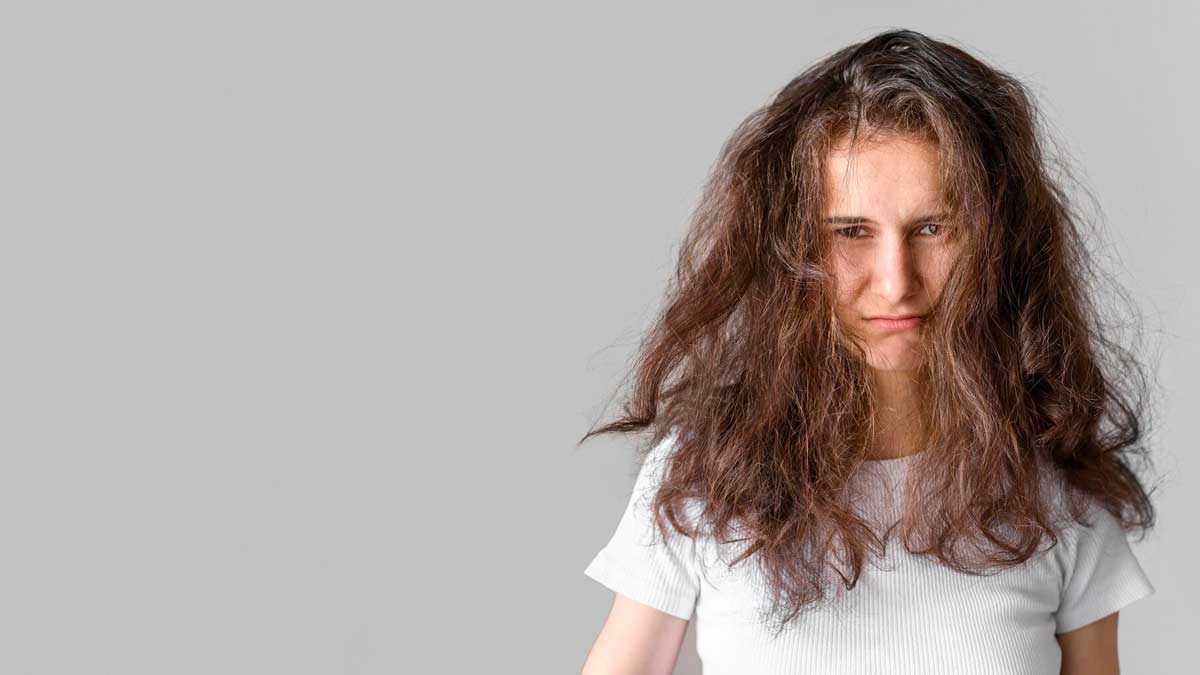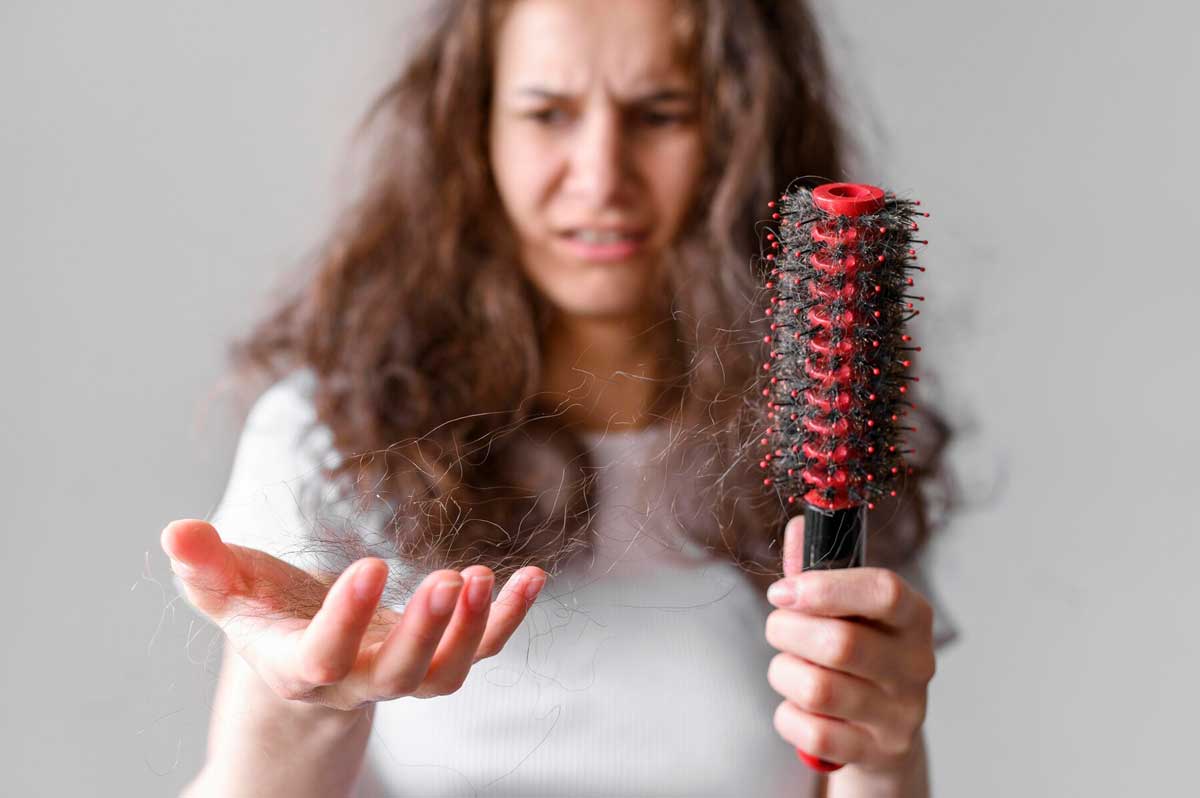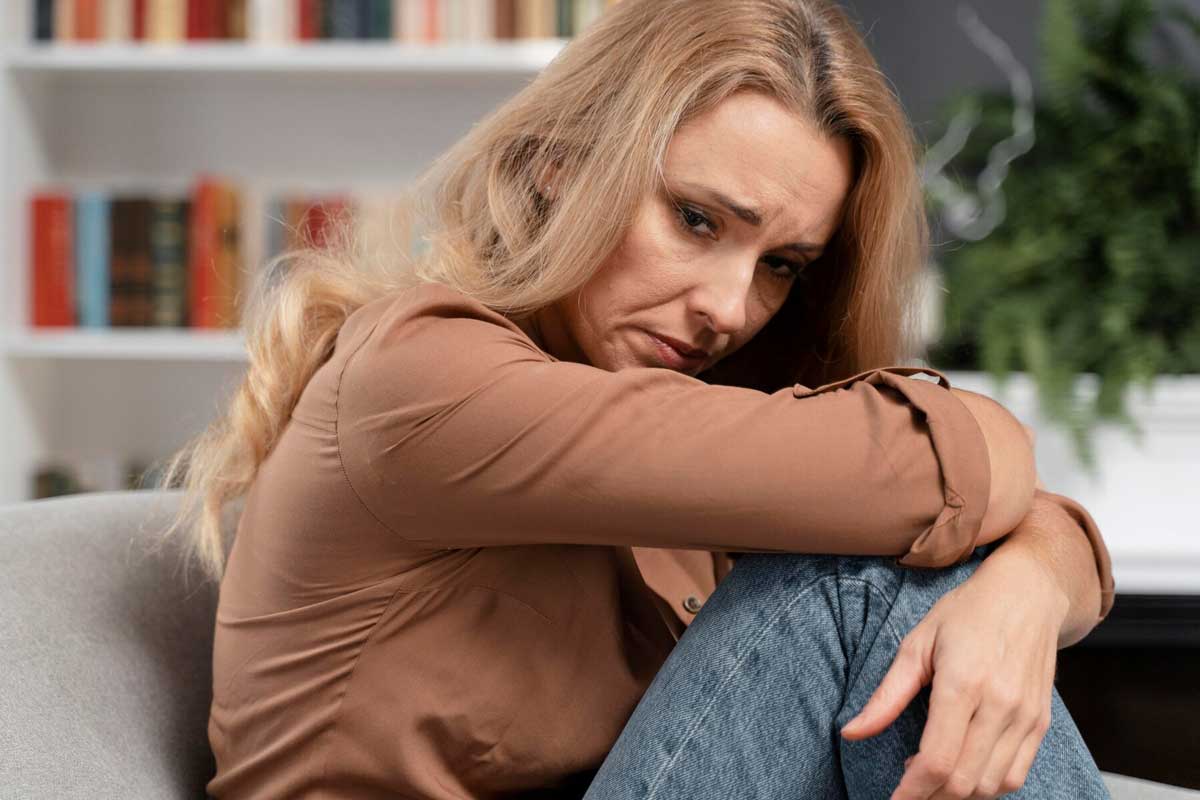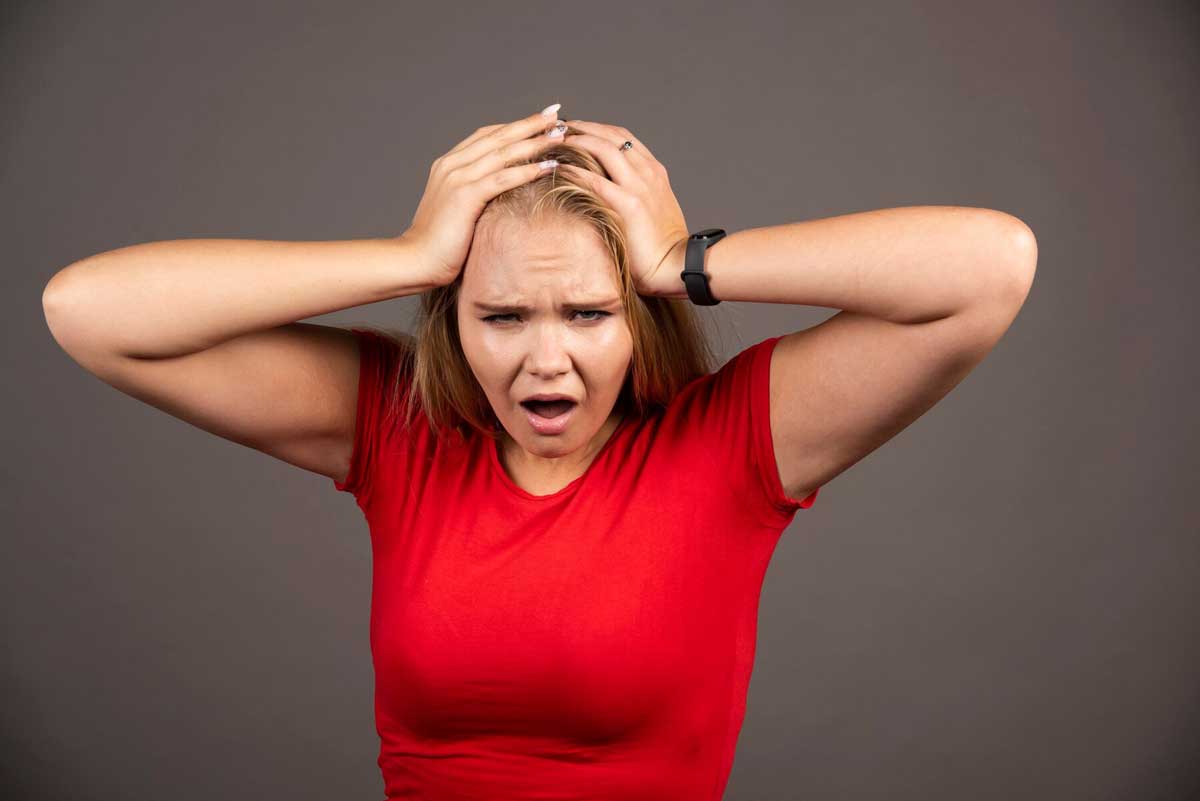Can Weight Loss Cause Hair Loss? Surprising Facts
Many people start losing weight for health and self-esteem reasons. But, not everyone knows that losing weight can affect hair health. Can losing weight really cause hair loss? This article explores the link between weight loss and hair loss, showing how big changes in weight can lead to hair loss.
It’s important to know this for those losing weight. It helps to take care of both physical and hair health during this change.

Key Takeaways
- Weight loss can influence hair health significantly.
- Understanding the link between weight loss and hair loss is vital.
- Nutritional factors play a crucial role in maintaining healthy hair.
- Slow weight loss can minimize the risk of hair shedding.
- Consulting healthcare professionals is advisable for hair loss concerns.
Understanding the Connection Between Weight Loss and Hair Health
Weight loss can surprise us with its effects on hair health. It shows how closely tied our body weight is to our hair. When we lose or gain a lot of weight, our hormones change. This can make our hair grow differently, leading to more shedding or thinning.
Stress is also key when talking about how weight loss affects our hair. Dieting or intense workouts can make our body stressed. This stress can hurt our hair health. It’s important to balance our weight loss with taking care of our mental health.
Changes in weight can also change how our body absorbs nutrients. When we start a new diet, we might not get all the vitamins and minerals our hair needs. Eating a balanced diet is key to keeping our hair healthy, especially when losing weight.
Knowing these links shows why we should watch our hair health as much as our weight. By choosing our food wisely and managing stress, we can keep our hair looking great, even when our weight changes.
Can Weight Loss Cause Hair Loss? Insights and Research
Recently, the link between weight loss and hair health has been closely studied. Studies show how big changes in weight can affect hair follicles and overall hair health. This knowledge helps us understand the emotional impact of hair loss due to weight loss.
Studies Linking Weight Loss and Hair Shedding
Research shows that losing a lot of weight can lead to hair shedding. This happens because cutting calories can mean not getting enough nutrients. Not having enough nutrients can mess up the hair growth cycle, causing hair loss.
Studies also point to hormonal changes as a possible cause. Losing weight can change hormone levels, making hair thinner and leading to more loss. These findings show a strong link between weight changes and hair loss.
Personal Accounts: Experiences with Hair Loss After Weight Loss
Many people have talked about losing hair after losing weight. They share how it affects their feelings about themselves. They thought losing weight would be good, but finding out they were losing hair was hard.
One person felt let down after reaching their weight goal but started losing hair. This made them rethink their diet and weight loss plan to fix their hair. Others have shared similar stories, showing the importance of support and awareness during weight loss.
Weight Loss Effects on Hair: What You Need to Know
Many people notice changes in their hair when they lose weight. It’s important to understand the different types of hair loss that can happen. These changes can greatly affect hair health.
Types of Hair Loss Related to Weight Changes
When you lose weight, you might see different types of hair loss. These include:
- Telogen Effluvium: This is a temporary condition. It happens when big changes in the body make hair follicles go into a resting phase. This leads to more hair falling out.
- General Thinning: You might see a slow decrease in hair density. This is because your body is adjusting to eating less or changing how it absorbs nutrients.
- Androgenetic Alopecia: This type of hair loss is mostly genetic. But losing weight can make it worse, especially if you’re already prone to it.
The Role of Nutritional Deficiencies in Hair Loss
Nutritional deficiencies play a big part in how weight loss affects hair. If you cut down on calories too much without planning, you might not get the nutrients your hair needs to stay healthy.
| Nutrient | Role in Hair Health | Deficiency Effects |
|---|---|---|
| Protein | Supports hair structure, promoting growth. | Weak hair leading to breakage and thinning. |
| Iron | Essential for oxygen transport to hair follicles. | Severe shedding and dull appearance. |
| Vitamin D | Facilitates hair follicle cycling and growth. | Increased hair loss and slow regrowth. |
| Zinc | Promotes healthy hair and prevents shedding. | Dry, brittle hair and thinning. |
Fixing nutritional deficiencies can help reduce the bad effects of weight loss on hair. Eating a balanced diet with the right vitamins and minerals can make your hair healthier. This can lessen the problems during weight changes.
Reasons for Hair Loss During Weight Loss
Weight loss can have many benefits but also brings unexpected hair loss. Several factors play a role in this. Knowing these reasons can help people prepare and maybe reduce hair loss concerns while losing weight.
Caloric Deficit and Hair Follicle Health
One big reason for hair loss during weight loss is the effect of a caloric deficit on hair. Eating fewer calories can take away important vitamins and minerals needed for healthy hair. This lack of nutrients stops the hair growth cycle, causing more shedding.
Not having enough calories also lowers energy and harms hair follicle health. These follicles need a balanced diet to stay healthy.
Impact of Rapid Weight Loss on Hair Structure
Fast weight loss can hurt the hair’s structure. Losing weight quickly puts a lot of stress on the body. This stress can cause telogen effluvium, a condition where a lot of hair falls out.
This quick change can shock the body, leading to more hair loss. It’s important to know how fast weight loss affects hair health for those thinking about extreme diets or cutting calories too much.

| Factor | Description | Impact on Hair Health |
|---|---|---|
| Caloric Deficit | Reduced caloric intake leading to nutrient deprivation | Disrupts hair growth cycle, leading to shedding |
| Rapid Weight Loss | Significant weight loss over a short period | Causes stress on the body, resulting in increased hair loss |
| Nutritional Deficiencies | Lack of essential vitamins and minerals | Weakens hair follicles, slowing down growth |
Shedding Hair After Weight Loss: Is It Normal?
Shedding hair after losing weight can be worrying. A common reason is telogen effluvium hair loss. This happens when your body changes a lot, like losing weight fast, and shows up weeks or months later. Knowing about telogen effluvium helps you understand what’s happening and when to get help.
Telogen Effluvium Explained
Telogen effluvium is a type of hair loss where more hair follicles start shedding. It usually happens when you lose weight quickly. Even though it looks bad, it’s often reversible. Most people see hair regrowth in 6 to 12 months after the weight loss.
When to Seek Help for Hair Loss Issues
Shedding hair after losing weight is normal, but sometimes you should get help. You should talk to a doctor if:
- The hair loss lasts over a year.
- It comes with scalp irritation or bald spots.
- Your health or well-being changes a lot.
Getting help for hair loss early can prevent bigger health problems. It also helps improve your hair’s health.
| Timeline | Expected Outcome |
|---|---|
| 0-3 months after weight loss | Initial shedding may begin |
| 3-6 months | Shedding is noticeable; many hair follicles enter telogen phase |
| 6-12 months | Potential regrowth begins |
| 12+ months | Consultation recommended if no regrowth is observed |
Weight Loss Impact on Hair Health: Nutritional Considerations
When you’re losing weight, keeping your hair healthy is key. Paying attention to the right nutrients is crucial. Eating foods that help your hair can lessen the bad effects of losing weight.
Essential Nutrients for Hair Growth
For healthy hair, you need certain vitamins and minerals. These nutrients keep your hair strong and full. Here are the main ones:
- Protein: Since hair is mostly protein, eating foods high in protein is important. This includes lean meats, eggs, and legumes.
- Omega-3 Fatty Acids: These healthy fats are in fish like salmon and nuts. They help your hair follicles and scalp stay healthy.
- Biotin: A B-vitamin, biotin helps make keratin. You can find it in eggs, almonds, and spinach.
- Vitamins A and C: These vitamins help make sebum, an oil that keeps your hair moisturized. Carrots and citrus fruits are good sources.
- Iron and Zinc: These minerals are key for hair growth. You can get them from red meat, beans, and pumpkin seeds.
Diet Plans that Support Hair Health
Eating well can make your hair look better when you’re losing weight. To make diet plans for healthy hair, mix different foods for enough nutrients. Here are some tips:
| Food Group | Examples | Key Nutrients |
|---|---|---|
| High-Protein Foods | Chicken, Fish, Legumes | Protein, Iron |
| Healthy Fats | Avocado, Nuts, Olive Oil | Omega-3 Fatty Acids, Vitamin E |
| Fruits and Vegetables | Berries, Spinach, Carrots | Vitamins A, C, Biotin |
| Whole Grains | Quinoa, Brown Rice, Oats | Fiber, B Vitamins |
Hair Loss Prevention During Weight Loss: Tips and Strategies
Weight loss can be tough on your body and hair. It’s important to focus on preventing hair loss to keep looking good and feeling confident. Eating a balanced diet is key to healthy hair growth and losing weight.
Maintaining a Balanced Diet While Losing Weight
A balanced diet is key for managing weight and keeping your hair healthy. Eating a variety of foods makes sure your body gets what it needs. Here are some important foods for your diet:
- Protein: Important for hair, eat lean meats, eggs, beans, and nuts.
- Vitamins and Minerals: Eat foods high in vitamins A, C, D, E, zinc, and iron like leafy greens, berries, and seeds.
- Healthy Fats: Omega-3 fatty acids from fish, walnuts, and flaxseeds are good for hair follicles.
By eating these foods, you can help keep your hair healthy while losing weight.
Supplement Options to Consider
Some supplements can also help prevent hair loss during weight loss. They can fill in nutritional gaps from eating fewer calories. Here are some supplements to consider:
- Biotin: Helps improve keratin structure for healthy hair growth.
- Fish Oil: Contains omega-3 fatty acids for a healthy scalp and hair.
- Multivitamins: These provide essential nutrients you might not get from your diet.
Always talk to a healthcare provider before starting supplements to make sure they’re safe and right for you. Combining a good diet with supplements can lower the risk of hair loss while you’re losing weight.
Psychological Effects of Weight Loss on Body Image and Hair
Weight loss changes how we see ourselves, bringing up complex feelings. While many celebrate feeling slimmer, others face deeper issues with their body image. These changes can make people worry more about their hair and how they style it.
Emotional Well-being and Personal Perception
Weight loss changes how we see ourselves. Getting to a desired weight can boost self-esteem, but it doesn’t shield us from feeling anxious. In fact, we might feel not good enough, especially about our hair. The pressure to have perfect hair makes us pay more attention to hair loss and quality, making body image issues worse.
Addressing Anxiety Related to Hair Loss
For some, losing hair during weight loss causes a lot of anxiety. This anxiety adds to the stress of weight changes, affecting mental health. It’s important for people to find support, like talking to others or joining groups. Counseling or support groups can help them deal with these tough feelings.

Expert Opinions and Advice on Managing Hair Loss Risks
Weight loss can change your life, but it’s important to know about hair loss risks. Getting expert advice on hair loss from pros can really help. It’s smart to consult nutritionists for health to make a plan that fits your body’s needs.
Consulting with Nutritionists and Dermatologists
Nutritionists are key in making diets that help with weight and hair health. They give advice on nutrients and calories important for healthy hair. Dermatologists offer specific help for hair loss, giving full care.
Long-Term Strategies for Healthy Weight and Hair
For lasting results, it’s important to do things that work over time. Here are some tips:
- Eat a variety of foods rich in nutrients.
- Drink plenty of water for your body and hair.
- Exercise regularly to help blood flow better.
- Use supplements if you need to fill nutritional gaps.
By using these strategies, you can handle hair loss risks and keep up with your weight loss goals.
| Strategy | Description |
|---|---|
| Nutrient-Dense Diet | Eat foods full of vitamins and minerals like biotin, zinc, and omega-3 fatty acids for hair growth. |
| Hydration | Drink enough water to keep your skin and hair healthy, reducing hair breakage. |
| Regular Exercise | Exercise boosts circulation and metabolic health, which helps hair growth. |
| Consult with Professionals | Keep in touch with nutritionists and dermatologists to check on your progress and adjust your plans. |
Conclusion
Weight loss and hair health are closely connected. It’s important to understand this link for those starting a weight loss journey. A balanced health approach is crucial, as not getting enough nutrients can harm hair health.
By eating a well-rounded diet and watching calorie intake, you can lower the risk of hair loss from weight changes. Throughout this article, we’ve seen how losing hair can happen when losing weight, especially with fast weight changes and not getting enough nutrients. Making healthier choices can help keep your hair looking good and support your overall health.
Knowing how weight loss affects hair can help you make better choices. This way, you can reach your weight loss goals and keep your hair healthy. Finding the right balance is key to good weight management and keeping your hair looking great.
FAQ
Can weight loss cause hair loss?
Yes, losing weight can lead to hair loss. This happens because of hormonal changes, not getting enough nutrients, and stress from losing weight.
What are the reasons for hair loss during weight loss?
Hair loss during weight loss is often due to not eating enough calories, not getting enough nutrients, stress, and losing weight too fast. These can all harm your hair.
How does a caloric deficit affect hair health?
Eating fewer calories than your body needs can hurt your hair follicles and slow down hair growth. This can cause more hair to fall out and make your hair look thinner.
Is it normal to shed hair after significant weight loss?
Yes, losing a lot of weight can make you shed more hair. This is called telogen effluvium. It happens when your body changes and more hair goes into a resting phase.
What types of hair loss are related to weight changes?
Losing weight can cause two types of hair loss. One is telogen effluvium, where more hair rests and falls out. The other is thinning hair, which can be due to not eating well and stress.
What nutritional deficiencies can lead to hair loss during weight loss?
Not getting enough proteins, vitamins (like biotin), and minerals can hurt your hair. This can make you lose more hair.
How can I prevent hair loss while losing weight?
To stop hair loss while losing weight, eat a balanced diet full of important nutrients. Think about taking supplements and don’t cut calories too much.
When should I seek help for hair loss issues related to weight loss?
If you keep losing hair or it gets worse, see a doctor. They can check what’s happening and help you.
What role do diet plans play in maintaining hair health during weight loss?
Eating plans that focus on important nutrients (like proteins, omega-3s, and vitamins) can help keep your hair healthy while you lose weight.
How do the psychological effects of weight loss relate to hair loss?
Losing weight can change how you see yourself and make you feel anxious. This can also make you worry more about your hair and how you look.
What expert advice is available for managing hair loss risks during weight loss?
Talking to nutritionists and dermatologists can give you good advice on how to avoid hair loss while losing weight in a healthy way.
If you want to know more about – How weight loss works, Read this article




